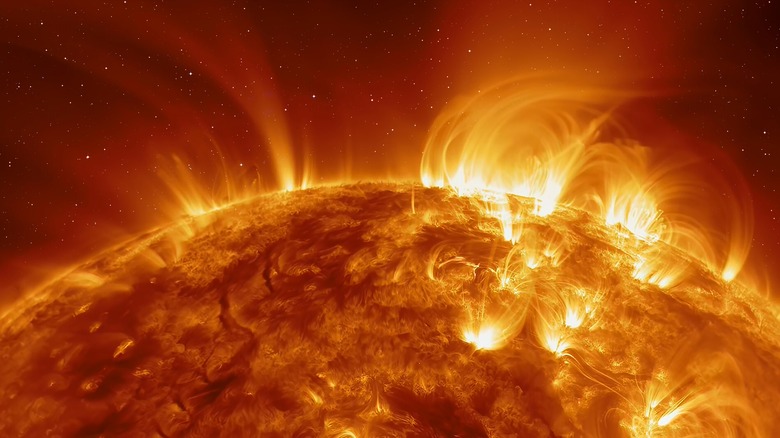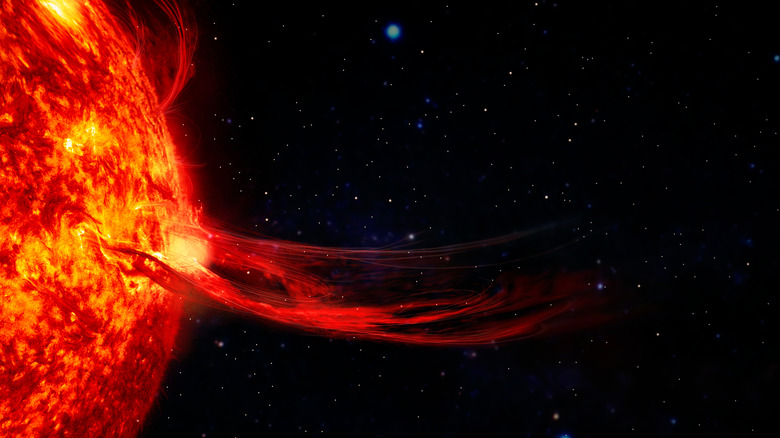Here's How Solar Storms Can Impact The Earth
Sometimes we can forget just how gigantic and powerful the sun really is, especially when it appears to us as just a small orb in the sky. However, there's a lot going on within the sun that can have repercussions felt throughout the entire solar system. It is, of course, what's keeping the solar system operating in the way it does, and provides us with much of the support needed on the planet to sustain life. So, it makes sense that powerful events happening on the sun could impact Earth.
One such event is known as solar storms and solar flares. These are types of solar activity emanating from the sun's magnetic field, as explained by NASA. They are the largest explosive events in the entire solar system. When a solar storm or flare happens, a release of magnetic energy causes radiation to blast through space and, potentially, come into contact with planets including Earth. Since solar flares are so enormous in magnitude, they do have the potential to affect Earth in some surprising ways.
Solar flares and Earth
Thankfully, Earth is pretty well protected from most solar storms and flares that originate from the sun. According to Live Science, Earth's magnetic field and our atmosphere keep us safe from this kind of solar activity. NASA has found that even the strongest recorded solar flares have been relatively unnoticeable to us here on Earth. However, this doesn't mean they're unable to cause any disruptions. Because of the amount of electromagnetic force an event such as a solar flare throws at Earth, it can have effects on the technology we use here.
Solar flares can cause electrical currents on Earth's surface, leading to the interruption of power grids, as well as the corrosion of oil and gas pipelines. Flares also lead to changes in the ionosphere, one layer of Earth's atmosphere, that can interfere with radio communications, as well as GPS technology and internet connections. All of this could potentially lead to hazardous situations.
One study also found that solar activity can have an impact on human cardiovascular health. In studying 263 U.S. cities, the researchers found an association between geomagnetic disturbances related to the sun's activity and an increase in cardiovascular disease and heart attack deaths. The researchers speculate that this increase could be due to the effects the disturbances had on the human autonomic nervous system. Thankfully, scientists keep close tabs on the activity of the sun in order to predict whether something catastrophic may occur — and, with the protection of Earth's atmosphere, something of that magnitude is unlikely to happen.

